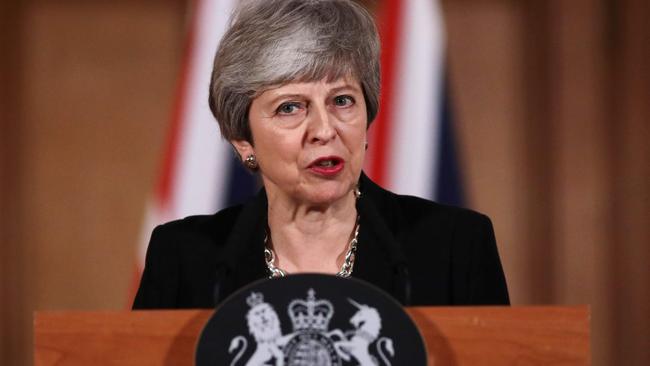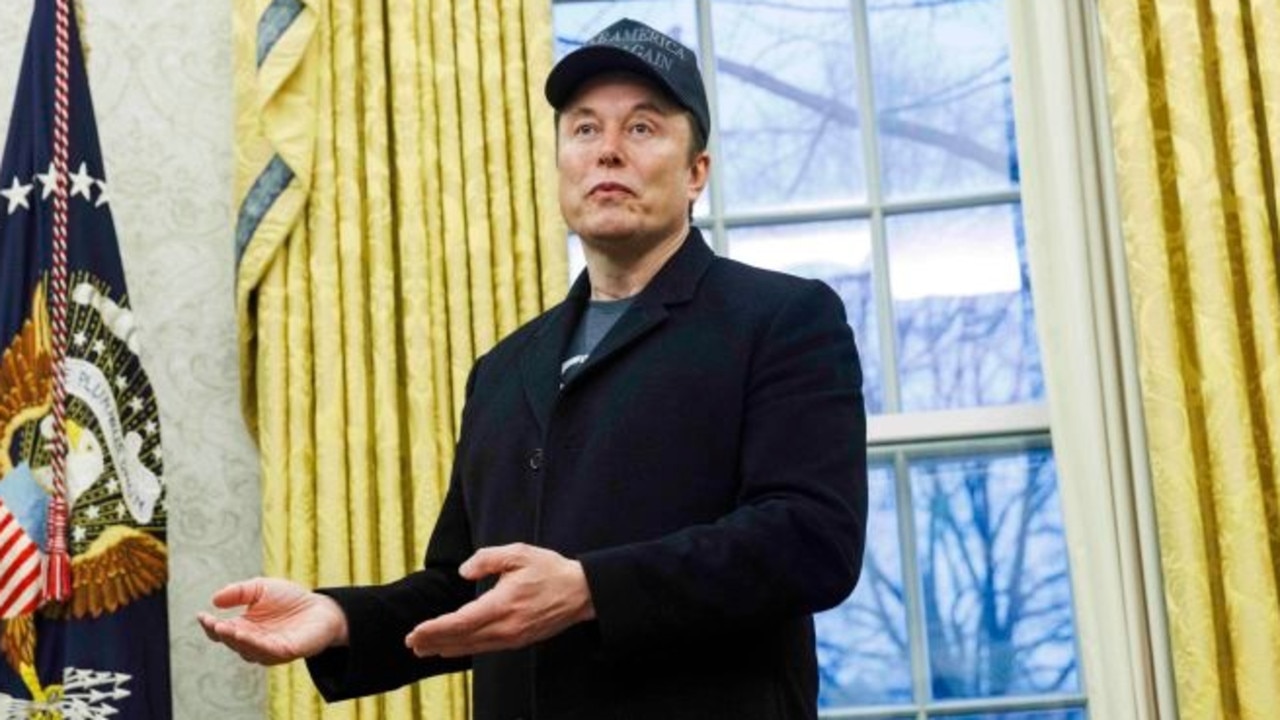Brexit: May offers cross-party talks, seeks extension to break deadlock
Theresa May turns her back on a no-deal, seeks short extension to hold cross party talks.

In a crunch point for the future of Brexit, Theresa May has indicated she will opt for a soft Brexit, as she offered cross party talks with Labour leader Jeremy Corbyn in a gamble that threatens a historic split of the Conservative party.
After a marathon seven hour Cabinet meeting the Prime Minister announced she would seek a short extension to Brexit in order to meet Mr Corbyn to find a consensus that would, as she put it, “break the logjam.”
But the move, which takes a no deal off the table, comes with the significant risk of destroying the Conservative party. At the very least it rips up the Tory party manifesto and Mrs May’s own “red lines’’ which she had insisted were immovable for the past two years.
The reaction of the Democratic Unionist Party, which provides the Tories with confidence and supply will be crucial. Key Brexiteers, including a dozen Cabinet members are now on “resignation watch’’ after failing to steer Mrs May towards a no-deal Brexit on April 12.
“This is a difficult time for everyone,’’ Mrs May said in an address to the nation early this morning (AEDT).
“Passions are running high on all sides of the argument. But we can and must find the compromises that will deliver what the British people voted for.
“This is a decisive moment in the story of these islands. And it requires national unity to deliver the national interest.”
Mr Corbyn said he was “very happy’’ to meet with Mrs May.
Following the all-day cabinet meeting, Mrs May said the extension she would request would be “as short as possible,” ending before May 22 so the UK does not have to take part in European elections.
Mrs May has taken a no deal Brexit completely off the table, saying that any new plan has to agree her current withdrawal agreement, which has failed three times to gain majority support in parliament.
However she has agreed to a cross party approach on the future relationship with the EU.
Importantly Mrs May said if no “single unified approach” can be made with Labour then a series of indicative votes held next week would be binding.
Immediate reaction from MPs was that Mrs May was “kicking the can down the road again’’ and that “was desperate stuff’’.
Mr Corbyn will insist on his party’s position of a customs union and single market access and if he and Mrs May can come to an agreement, the cross-party outcome of a soft Brexit will be presented to the EU for ratification.
Cabinet member Michael Gove said it was better to leave with a deal and called on the Labour party to support its manifesto pledge to support Brexit.
Mrs May’s moves have sidelined an immediate fourth vote on her withdrawal agreement and also deferred the imminent threat of a general election or a vote of no confidence in her government.
The dozen Brexiteer cabinet members emerged stony-faced and silent from 10 Downing Street this morning, while the 10 remainer cabinet members were buoyed by the development.
Earlier they were locked in the Cabinet room without their phones until after Mrs May had made her national address.
The former foreign secretary and Brexiteer Boris Johnson said he was very disappointed at Mrs May’s decision.
“It is very disappointing to have Brexit entrusted to Jeremy Corbyn and the Labour party and if Mr Corbyn gets his way we will remain in the customs union without controlling our trade policy and huge areas of lawmaking,” he said. “Brexit is becoming softer to the point of disintegration.’’
Labour MP Hilary Benn told Sky News: “It is significant she has said she is not taking us over the edge of the cliff in April … if she is genuinely open to a different approach, Labour’s position is for a customs union, an arrangement in the single market and crucially a confirmatory referendum.’’
Mr Benn acknowledged that if the UK remains a member of the customs union, Britain may have no vote on trade decisions made by the EU, but he insisted that would be overcome because “we are a big and important country’’.
Scottish First Minister Nicola Sturgeon said: “This does seem very much like the Prime Minister kicking the can and, yet again, delaying making any decision that could break her Cabinet. What is missing is an answer from her to the question that many MPs faced up to last night — what is the compromise she is willing to make?’’
Earlier, a fresh constitutional crisis emerged after rebel backbenchers demanded that a law be passed forcing Mrs May to request a long extension to Brexit.
Backbenchers led by Labour’s Yvette Cooper and the Tory stalwart Oliver Letwin took control of the parliament timetable for tomorrow, issuing a motion to try and force a bill through the Commons and the Lords in one day this week. They also planned indicative votes for Monday, but that may now be superseded depending on how the talks develop between Mrs May and Mr Corbyn and it could be the government’s series of motions that will be tabled.
The Cooper-Letwin bill will demand that the Prime Minister tables a motion to extend article 50 for a specific time. If the EU chooses a different timeline, any new date would have to return to the parliament for a vote.



